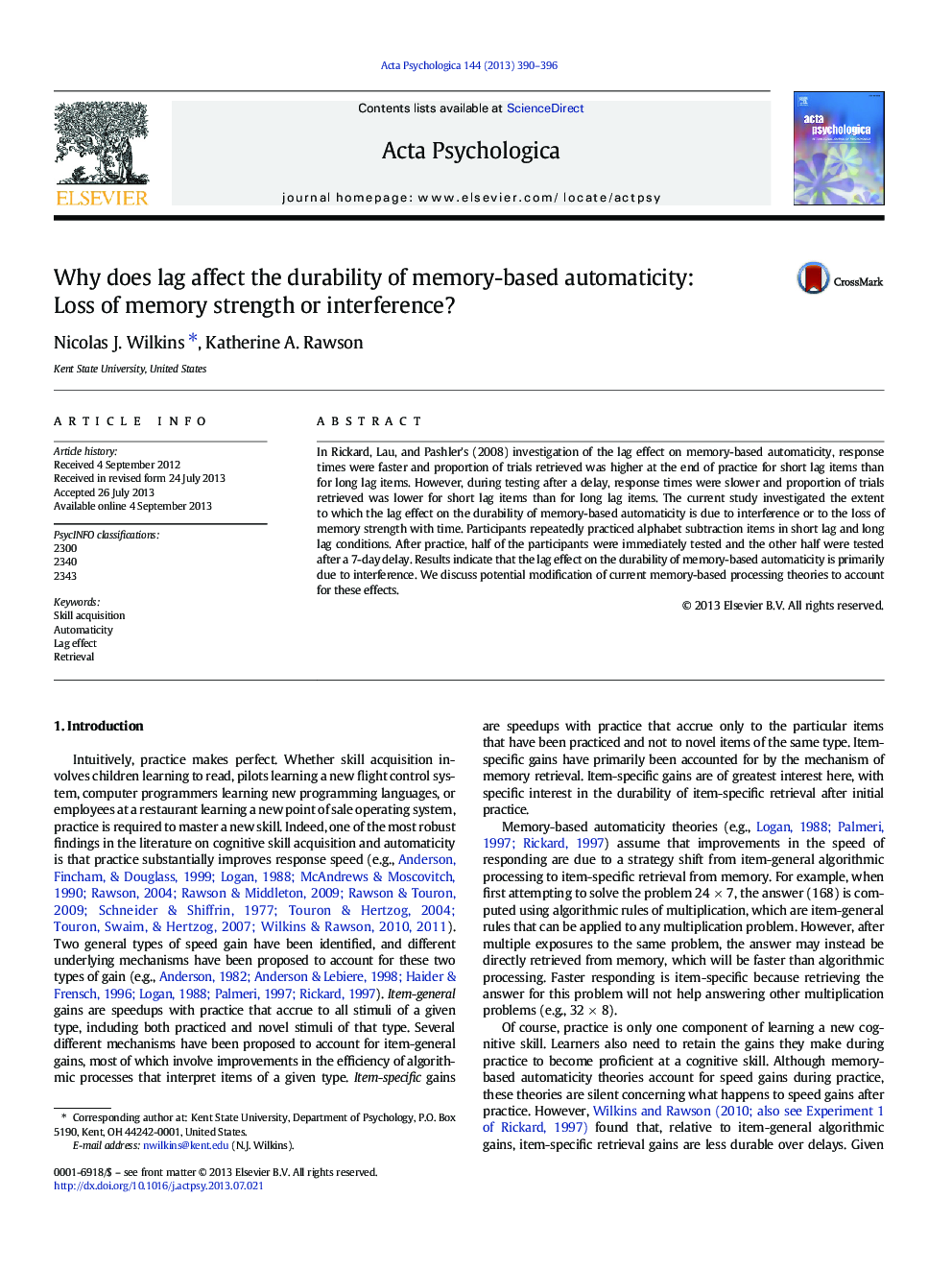| Article ID | Journal | Published Year | Pages | File Type |
|---|---|---|---|---|
| 10453786 | Acta Psychologica | 2013 | 7 Pages |
Abstract
In Rickard, Lau, and Pashler's (2008) investigation of the lag effect on memory-based automaticity, response times were faster and proportion of trials retrieved was higher at the end of practice for short lag items than for long lag items. However, during testing after a delay, response times were slower and proportion of trials retrieved was lower for short lag items than for long lag items. The current study investigated the extent to which the lag effect on the durability of memory-based automaticity is due to interference or to the loss of memory strength with time. Participants repeatedly practiced alphabet subtraction items in short lag and long lag conditions. After practice, half of the participants were immediately tested and the other half were tested after a 7-day delay. Results indicate that the lag effect on the durability of memory-based automaticity is primarily due to interference. We discuss potential modification of current memory-based processing theories to account for these effects.
Related Topics
Life Sciences
Neuroscience
Cognitive Neuroscience
Authors
Nicolas J. Wilkins, Katherine A. Rawson,
